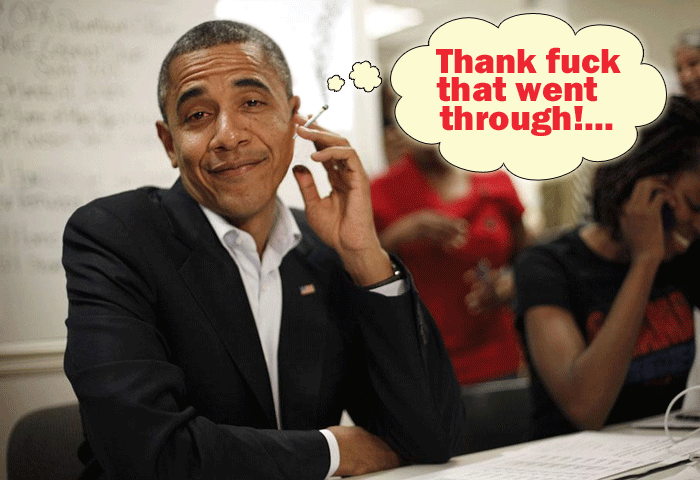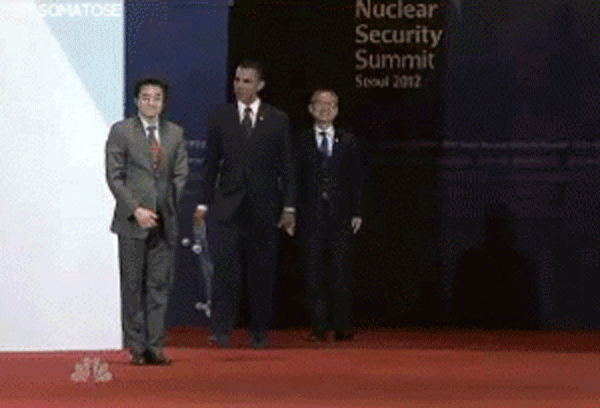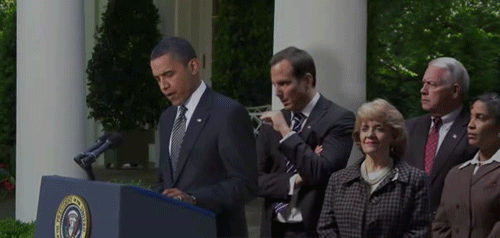Some Republicans starting to move away from Grover Norquist's pledge not to raise taxes with the fiscal cliff looming:
GOP resistance to anti-tax pledge grows
By Tom Cohen, CNN
updated 11:51 AM EST, Mon November 26, 2012
STORY HIGHLIGHTS
- More Republicans are calling for increased tax revenue in a deficit deal
- Anti-tax crusader Grover Norquist doesn't sound worried
- President Obama and Congress are trying to work out an agreement
- Without a deal, the nation faces the so-called "fiscal cliff" come January
Washington (CNN) -- Is it a slow leak that will grow into a cascade, or a minor drip easily plugged?
More and more, conservative Republicans in Congress are breaking from a pledge they signed years earlier against any kind of tax increase or additional tax revenue.
Facing the so-called fiscal cliff at the end of the year when automatic tax hikes and deep across-the-board spending cuts will occur, the GOP legislators are signaling their willingness to cut a deal with President Barack Obama and Democrats that would include more money for the government.
The overall numbers remain relatively small -- a handful of senators and House members -- but they include influential veterans such as Sens. Saxby Chambliss of Georgia, Bob Corker of Tennessee and Lindsey Graham of South Carolina, along with Rep. Peter King of New York.
"We don't generate enough revenue," Graham declared Sunday on ABC, officially disagreeing with the Taxpayer Protection Pledge he signed at the behest of anti-tax crusader Grover Norquist.
The founder of the conservative Americans for Tax Reform, Norquist advocates shrinking government by cutting spending instead of raising taxes.
He sounded unconcerned Monday about the GOP backlash, telling CNN that "no pledge-taker has voted for a tax increase."
"You've had some people discussing impure thoughts on national television," Norquist said.
The public shift by some Republicans comes after Obama won re-election and Democrats increased their slim Senate majority and narrowed the GOP majority in the House in this month's election.
In what have been secret talks so far, Obama and Congress are seeking a possible "grand bargain" to cut the chronic federal deficits and debt. Without a deal, tax cuts from 2001 and 2003 -- when George W. Bush was president -- will expire, raising rates for everyone starting in January.
At the same time, steep cuts in government spending on the military and other departments also will take effect, causing some economists to warn of a possible new recession.
A new CNN/ORC International poll released Monday shows a solid majority of respondents -- two-thirds -- supports the Democratic stance that any agreement should include a mix of spending cuts and tax increases. Of that total, Republicans favor such an approach by 52%-44%.
In particular, Obama and Democrats insist that wealthy Americans, so far identified as those with income higher than $200,000 for individuals or $250,000 for families, should pay more taxes than they do now so that rates for everyone else stay the same.
However, the outgoing Congress in a lame-duck session for the rest of the year, as well as the new Congress to be seated in January, include large numbers of Republicans who signed the Norquist pledge.
Come January, there will be 39 senators, including Chambliss and Graham, and 219 House members who have signed the pledge.
The House total constitutes a narrow majority in the 435-seat chamber, though some members have denounced their allegiance to the pledge much like Chambliss and others have done.
They generally draw the line at tax increases, calling instead for eliminating loopholes and deductions to raise more tax revenue while keeping tax rates the same or even lowering them.
"It's fair to ask my party to put revenue on the table. We're below historic averages," Graham told ABC. "I will not raise tax rates to do it. I will cap deductions. If you cap deductions around the $30,000, $40,000 range, you can raise $1 trillion in revenue, and the people who lose their deductions are the upper-income Americans."
At the same time, Graham and other conservative lawmakers demand that Democrats agree to significant reforms in entitlement programs such as Medicare and Medicaid, the government-run health care programs for senior citizens, the disabled and the poor.
"I will violate the pledge, long story short, for the good of the country, only if Democrats will do entitlement reform," Graham said.
On the same program, Democratic Sen. Dick Durbin of Illinois said some changes to Medicare are needed, but he ruled out any reforms to Social Security, the national retirement plan, saying it is a separately funded system that "does not add a penny to our debt."
Noting opposition to entitlement reforms by traditional Democratic allies such as organized labor, Durbin said everyone has to realize some changes are needed in Medicare and Medicaid.
"Those who say 'don't touch it, don't change it' are ignoring the obvious," said the Senate's No. 2 Democrat, adding that "we can make meaningful reforms in Medicare and Medicaid without compromising the integrity of the program, making sure that the beneficiaries are not paying the price for it, except perhaps the high-income beneficiaries. That to me is a reasonable approach."
However, Durbin balked at one proposal sought by Republicans -- to slowly raise the eligibility age for Medicare above the current level of 65.
"What happens to the early retiree who needs health insurance before that person's eligible for Medicare?" Durbin asked. "My concern about raising that Medicare retirement age is there will be gaps in coverage or coverage that's way too expensive for seniors to purchase."
Graham rejected Durbin's point, saying the same change instituted in Social Security has worked. He also called for adjusting benefits based on the personal wealth of recipients, so that those with more money have to pay more for services.
Norquist said Democrats will never agree to the negotiating position of Graham and other Republicans, calling the demand for entitlement reforms akin to a "pink unicorn that doesn't exist."
The political risk for Republicans to going against the no-tax pledge comes from angering Norquist and other conservatives who can target them in GOP primary campaigns in 2014 and beyond.
Norquist said Monday his group would "certainly highlight who has kept their commitment and who hasn't" when re-election time comes.
"The key here is whether or not the Republicans will move away from the ideologically rigid position, which has been the Grover Norquist pledge," Democratic Sen. Carl Levin of Michigan told NBC on Sunday. "You've got to raise additional revenues, including tax rates on the wealthy. They have to go up. Either real tax rates or effective tax rates, there are ways of doing that."
CNN's Paul Steinhauser and Kevin Liptak contributed to this report.
Source.











